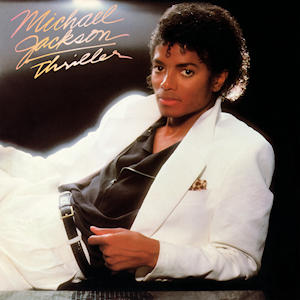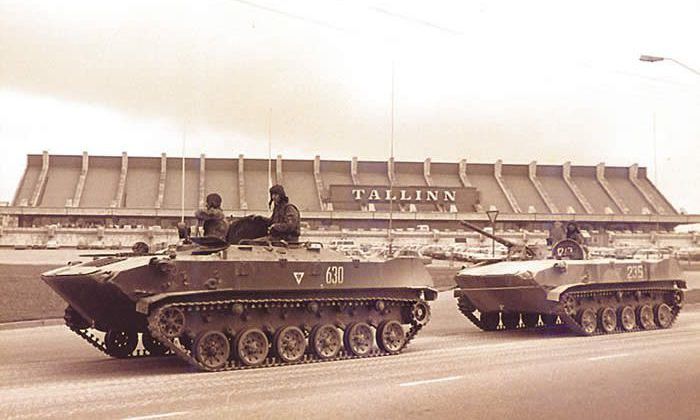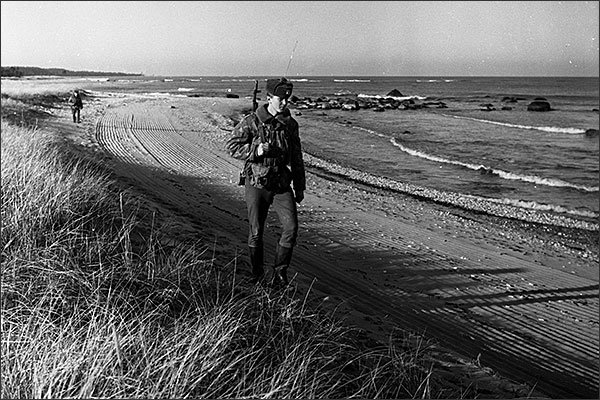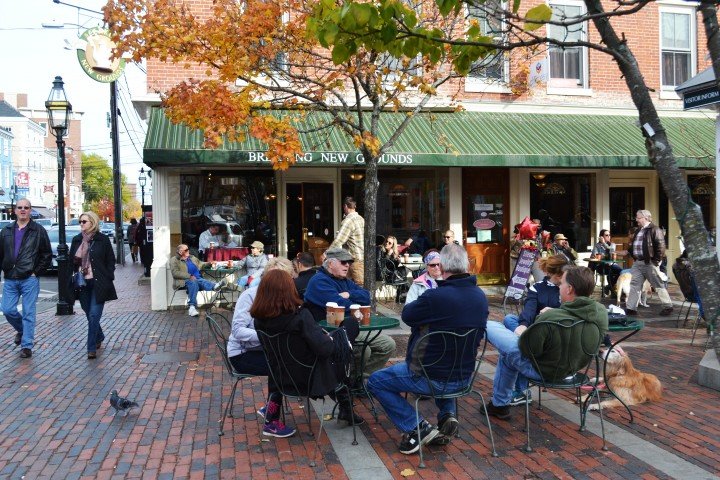Karoli Hindriks, the CEO and founder of the Estonian startup, Jobbatical, writes about her personal not-so-pleasant experiences of growing up in the Soviet-occupied Estonia.
This week my native country, nestled in a remote corner of the Earth about 500 miles from Santa’s village, celebrates 25 years since the restoration of its independence. 25 years since I stood by the road in my hometown, watching the Russian tanks leave. 25 years since actual food arrived in the stores. 25 years since I tasted yoghurt for the very first time (it was strawberry-flavoured, in case you were wondering). 25 years since the wall isolating us from the outside world collapsed and the terror started to fade.
I’ve been observing the recent happenings around Brexit and the Donald Trumps of the world wanting to build walls to isolate their people from the outside world. I’ve come to the conclusion that none of these people have absolutely any idea what they’re talking about, much like someone who’s never been hungry can never understand the meaning of hunger.
Everybody was equal, but some were a lot more equal than others
I was born in a country occupied by the Soviet Union and my childhood was largely spent in full isolation from the outside world. Let’s talk about life in that world – a world that some people today are trying to rebuild out of ignorance and hate.
My family lived in a small town called Pärnu. One of the main things I remember from early childhood is waiting in lines. To get anything at all – from a chunk of butter to a pair of socks – you had to stand in line for hours, and in most cases you still walked home empty-handed.
I have a younger brother, so my mother often sent me to do the queueing. Luckily we lived right next to the grocery store (minus the groceries most of the time, of course). I would recognise the sound of a bread truck from a mile away, drop whatever I was doing to run home for coupons (money was quite worthless), and then head to the bread line. The smell and taste of fresh rye bread (with butter, if we were lucky) still gives me goose bumps. If I could order a tailor-made scented candle today, that would probably be it.
You had to know somebody who knew somebody who knew a high-ranking Soviet state official, just to get access to groceries. That’s how “equal” the world of communism was: everybody was equal, but some were a lot more equal than others.
Once our dad brought home bananas. I’m not sure what he had to do to get them, but we couldn’t have been happier, even though they were green and we had to wait days for them to ripen.
The meaning of Iron Curtain
Travelling outside the Soviet Union was practically impossible. You needed an exit visa and a very convincing reason to visit even the (very Estonian) island of Saaremaa – apparently the risk of people escaping the country by boat (to Sweden) from the island was too high.
My grandmother had met a Swedish sailor in Tallinn and married him a few years before I was born. After years of KGB interrogations, tears and threats to her family, she got the permission to leave the country and live in Sweden with her new husband. Years later, when she was finally allowed to visit us in Estonia again, she had to stay in a hotel near the port where all rooms were wired by the KGB.
 But during her trips, my grandma managed to smuggle in important things from the outside world – such as tomato ketchup and Michael Jackson’s hit album, “Thriller”. It was that album cover that taught me there were people of other colours in the world. When I first saw two real-life black people years later, I yelled with excitement: “Look, sister! The Jacksons!” My then teenage sister could not have been more embarrassed.
But during her trips, my grandma managed to smuggle in important things from the outside world – such as tomato ketchup and Michael Jackson’s hit album, “Thriller”. It was that album cover that taught me there were people of other colours in the world. When I first saw two real-life black people years later, I yelled with excitement: “Look, sister! The Jacksons!” My then teenage sister could not have been more embarrassed.
In the Soviet world, anything outside the average was punishable. The tens of thousands of people deported to Siberian concentration camps from Estonia were mostly the intellectuals of the country: the lawyers, the doctors, the writers. Homosexuality was a criminal offense with punishments of up to five years’ hard labour. A disabled person in the public space was a rarity. The dreams of an individual were taboo.
World with open minds and open borders
Fast-forward to ten years after the collapse of the Soviet Union. I had managed to get a scholarship for a student exchange in New Hampshire in the United States. I remember sitting in my favourite Breaking New Grounds café in Portsmouth six months after my arrival, sipping hot chocolate with marshmallows and realising how I had changed for the better during my time in the States. How something in my view of the world had shifted. It occurred to me then that if every person could live abroad for at least a year, the world would be a better place.
Although I got to the actual idea for my company, Jobbatical, fifteen years later, this was the moment that sparked my inspiration. It was then that I decided I wanted to help build a world with open minds and open borders.
As the Atlantic magazine reported, “In recent years, psychologists and neuroscientists have begun examining more closely what many people have already learned anecdotally: that spending time abroad may have the potential to affect mental change.” The article goes on to say, “Neural pathways are influenced by environment and habit, meaning they’re also sensitive to change: New sounds, smells, language, tastes, sensations, and sights spark different synapses in the brain and may have the potential to revitalise the mind.”
My daughter travelled more before she was born than I had within the first fifteen years of my life. She has interacted with people of all colours, races and religions. In her world there are no stereotypes, just people. It is my mission to encourage that in her life. And it is our mission with Jobbatical to encourage that in the world.
I
This post was first published in Jobbatical blog. The opinions in this article are those of the author. Cover: The Soviet tanks and military vehicles entering Tallinn for the last time on 20 August 1991 (photo by Tõnu Noorits). Read also: Visit behind the Iron Curtain.





Awsome post 🙂 I agree, many people have a very narrow view of what’s happening around them and why. I think the moment you stop actively seeking opportunities to step out of your comfort zone to expand your mind, you slowly start dying. If you don’t get exited anymore, if you stop looking forward to things and stop learning, you’re not reaching your full potential as a human being. We are all here to experience, learn and leave our mark. It is a pity some people do not realize that our differences enrich us and that out of obscurity most innovative ideas are born. It’s a pity people decide on issues they have very little knowledge about and even more shameful if they have no interest in getting more knowledgeable. I think our education system plays a big part in perpetuating this kind of behaviour by awarding students who can regurgitate what they learn from a book onto a test paper, while prohibiting any real discussion. Hate and fear can be significantly diminished with education, knowledge and experience and soft sciences play a great role in forming a society that works together instead of against each other
Thank you for awakeing my memories. My mother was from Saaremaa and Papi was from Tallin. They met and married in the USA. I remember my mother trying to fixpackages that would get through the thieves at the Customs office. She sewed skirts (which were allowed) with easiliy removable seams and eleastic waistbands…out of bolts of fabric which were confiscated)
My wife Viive (born in Voru Dec. 24, 1941) were in Esonia the day of coup attempt August 19 (her second trip with me since 1966 when she returned with me in fear). We were in Parnu when coup occurred. Her cousin Vello Popp drove us to Tallinn that day with the tanks. She was in fear of course. We were at her Uncle Ant’s Apt. When the call for men to go the TV Tower and Government Buildings. He left with some bread immediately. I said I, an American, would go with him. He said no, they would use me as propaganda. The Port was blockaded. Within a day Yeltsen jumped on the tank and said it was over. We were in the square near the church when a verbal announcement was made by Savisaar and others that Estonia was Vabasus. We drank a lot of cogniac and cried for joy with thousands in the Square.
http://news.err.ee/v/business/43a39f1d-d4cf-4112-962c-e3e57beb525c/jobbatical-finishes-year-with-over-400000-deficit